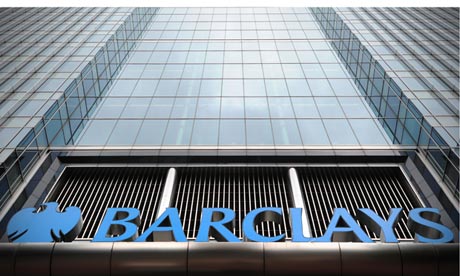Barclays Egypt is awaiting the sale of its local unit to resume implementation of the expansion strategies in the Egyptian market, said Sherif Al-Behery, the bank’s director of Business Banking.
The bank achieved a net profit of EGP 511m over the past five years. It was EGP 5m in October 2011 and EGP 606m as of December 2015. The bank did not transfer this profit to the parent bank but rather allocated it to support the bank’s capital base.
Al-Behery attributed the obvious growth in the bank’s profit to following new systems and mechanisms by not limiting any team to its specific work, but encouraging them to interact with the rest of the sectors through having common goals. Barclays has been following the ‘organising home’ policy since 2010; part of this policy is to decrease the number of workers from 3,000 to 1,480, by focusing on qualified workers and the development of their capabilities.
Business News indexes, which measure the performance of the banking sector, showed that Barclays Egypt came in fifth place in terms of efficiency.
The bank’s priority is its teams’ good performances and following an advanced strategy in training its cadres. Employees’ salaries account for 40% to 45% of the bank’s total expenses. The bank’s efficiency is an indicator of its internal organisation, relying on and reforming the internal system is the most important step to achieving external success among banks and acquiring a market share in the Egyptian market.
The 5.4% decline in deposits from individuals at the bank is due to the problems of providing dollars. Most customers had to withdraw their deposits to cover documentary credits and external trade and to deal with other banks that are able to provide foreign currency.
The bank’s total credit portfolio amounted to EGP 7bn as of the end of March. Al-Behery refused to disclose the bank’s current targets, as he is waiting for the result of the exit process and the transfer of the current shareholders’ ownership to new ones.
Barclays group decided to exit the Egyptian market as part of a plan to sell some business units in Africa and Europe in order to re-focus on retail, corporate, and investment sectors. The plan comes as part of the modernisation processes in the strategy of Barclays PLC.
The size of the financing portfolio of small- and medium-sized enterprises (SMEs) amounted to EGP 1bn as of the end of March. The deposits of the sector’s customers registered EGP 1.8bn and the defaulting portfolio at the sector is less than 1%.
Barclays will align with the Central Bank of Egypt’s (CBE) decisions with regards to the SMEs initiative. Its SMEs portfolio will not account for less than 20% of its total loans and credit facilities portfolio.
The bank’s plan to achieve this will be presented to the CBE in July for approval.
The bank’s individual finance portfolio amounted to EGP 2.3bn as of the end of last March. Barclays has conducted changes in the individual finance products to meet the controls approved by the CBE with regards to retail banking. The CBE’s controls stipulate that banks should keep the total loans instalments for consumption purposes, such as credit cards, personal loans, and personal car loans, with a maximum 35% of total monthly income after deducting taxes and social insurance.
Barclays individual finance products include personal loans, car loans, and credit cards, in addition to professional and business financing.




